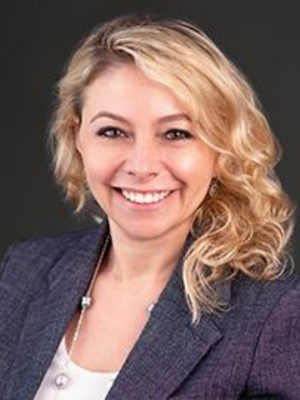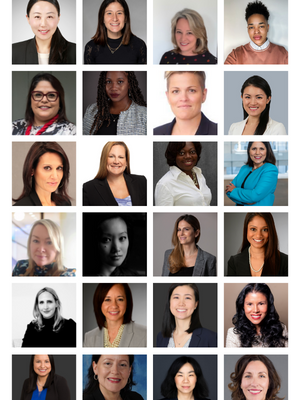 So far, this decade has been a rollercoaster for professional women. Everyone has been inundated with large amounts of work to get through, while all sorts of moving targets and complex constraints to deal with just keep coming. A potential hit to the economy looms as the usual cyclical market downbeat slides to recession with layoffs already starting. Dovetail this with almost everyone having a really long, hard think about their values over the past couple of years, and the unanimous request from all workers in every survey ever done to have more flexibility, we should be set up for the most interesting years to come on the topic of work, career and what is professionalism.
So far, this decade has been a rollercoaster for professional women. Everyone has been inundated with large amounts of work to get through, while all sorts of moving targets and complex constraints to deal with just keep coming. A potential hit to the economy looms as the usual cyclical market downbeat slides to recession with layoffs already starting. Dovetail this with almost everyone having a really long, hard think about their values over the past couple of years, and the unanimous request from all workers in every survey ever done to have more flexibility, we should be set up for the most interesting years to come on the topic of work, career and what is professionalism.
Normally we write a year-end review piece, which we have written for the past fifteen years, detailing progress for professional women and examining trends that matter, and it was implicitly assumed that progress on parity had to be linear. Now we know the real issue is overwork and outdated ways of working for all. Perhaps this is what changed the game for us here at theglasshammer as we realized that battling an old system, and defining ourselves and our success by the standards of that system, is not the only way to look at it with the latest UN women report stating unsurprisingly that the goal of gender equality is not on track to happen by 2030.
The glass ceiling is still there for all the legacy and structural reasons we know about, but overwhelmingly people have been open about multiple realities and having multidimensional lives. Assimilation, sacrifice and silence is not trending right now and in a study conducted on work identity by Kathryn Boyle at the Glasgow Caledonian University (UK), Gen Y are not feeling like their narrative arc in their career has to be as cohesive as others did in Gen X and Boomer generations. This means the career ladder which we have written about extensively is somewhat less powerful a construct than it has ever been, and the ceiling, or rather the structures and rules that held the game together, are being replaced with people choosing to leave to play other games or ignoring the rules entirely. The lattice is where most of us find ourselves.
What Do Future Leaders Want?
What Gen Z want from their managers most of all is a positive attitude and a clear delineation of goals while millennials want open communication and feedback, followed by goal clarity according to a recent study at Berkeley Haas School of Business, University of California. Jarringly, the same study suggests Gen X managers are not really prepared to play ball in this way with only 33% ready and willing to give feedback with a positive attitude. There is a disconnect that should be addressed by savvy managers who want to liberate and empower so people can innovate. And this disconnect will only be accentuated by companies not setting managers up for success operationally in the hybrid environment.
Regardless of ambition levels, ability and willingness to work long hours, professional women and men want work to work for them – they want flexibility and a lattice approach to work, or even for work to not be all-consuming as professional careers in banking, law and executive life has previously been known for. The physical and psychological boundaries we once knew such as going to the office on a train five days per week is less desirable than ever as seen in the endless studies citing hybrid as the preferred format for the future. It doesn’t mean productivity is down or that people aren’t passionate about their work or career, it just means that we have arrived at a time where smart bosses know that trust is the social currency and that removing organizational grind and tasks that don’t belong to the team is the key to a happy and high functioning workforce.
Here are Five Things for You to Do for the Best Career Results in 2023
- Leave the anxiety and worry at the door. While there are serious swirls inside companies and in the external marketplace, it is ok to just control what you can. Start by understanding what exactly your responsibilities are in your role and then try to align your ability to execute on them as closely as you can – resources, authority, budgets, for example. Avoid perfectionism and over-responsibility tendencies where you think you are responsible for all outcomes or other people’s happiness or success. Thirdly, examine your relationship with uncertainty and figure out how to get comfortable with ambiguity as this year coming promises plenty of that.
- Get an executive coach. Advice on its own means nothing as its abstract and subjective. A good coach will help you understand yourself and your behaviors in context of what is going on around you. Think growth, think development. Coaching is one of those industries where there is a low bar to entry so pick your coach wisely as you should be able to have a chemistry meeting with your coach to make sure you can vet them for the value that they will add to your present goals and challenges. There are career coaches and there are executive coaches. Mentors, sponsors and consultants are different from a coach as a mentor will share their advice from their perspective and a sponsor will advocate for you. A coach will evoke your highest thinking and help you build muscle around goal achievement, strategic insight and co create behaviorial toolkits to deploy live time in meetings and work situations. It helps if your coach has a background in organizational development or industrial psychology as context does matter. A coach that gives you advice only is a bad coach.
- Read these three books in 2023 that will help you in your career- no matter where you are at. Herminia Ibarra’s Act Like a Leader, Think Like a Leader which will help you refresh you do your job with new insights, consider what your next job could look like and generally challenge everything you thought you knew about being competent and how that is enough. My second favorite book to recommend is Kegan and Lahey’s Immunity to Change which is academic to read but really is powerful for anyone wrestling with fear, shame or imposter syndrome – it is a user friendly book to clear the debris to really achieve your career goals behaviorally. And finally, I reccommend Kolb and Williams’ Everyday Negotiation as a must-read for anyone who thinks how did that person get the upper hand in that conversation? This book explores how to operate in everyday conversations at work. If you cannot read the whole book, start with the HBR article as it is a great way to understand how to navigate the power dynamics that exist in any work relationship. There has been an updated article discussing negotiating as a women of color to read on HBR this year.
- Network and mean it. Find people who can help you and you can help in return. Be sincere in your offer for help. Make it personal. No one likes an endless taker, and no one has time to do the work for you. Know your value in the exchange!
- Be authentic, and at the same time, seek advice that inspires you to be the best version of you. Use the sites like this one, and others like landit.com, fairygodboss.com and the muse as well as elevate to garner specific career advice for women in the workplace. Look for other sincere people as there are many false prophets and dead poets in this gender space taking your money for something that you already have.
Here at theglasshammer.com we have spent 15 years deeply covering the topic of advancing, empowering, informing and inspiring professional women and with 8000 articles in our archives, we encourage you to delve in and read any that might be useful to you. We have profiled over 1000 amazing women. We have coached rising stars as well as the best in the business to be even better leaders.
In 2023, we will continue to have our digital campfire for women who are change leaders to tell their story around. We want to profile creators and leaders who understand that the future is a vision that can be reached with the right focus. Our main offering is leadership coaching so if you wish to go from mid-level to senior level, or even are very close to the top and need an extra piece of work to polish and refine your behaviors, then book an exploratory chemistry session here with Nicki Gilmour – our founder, and executive and organizational coach.
By Nicki Gilmour, Founder and CEO of theglasshammer.com



